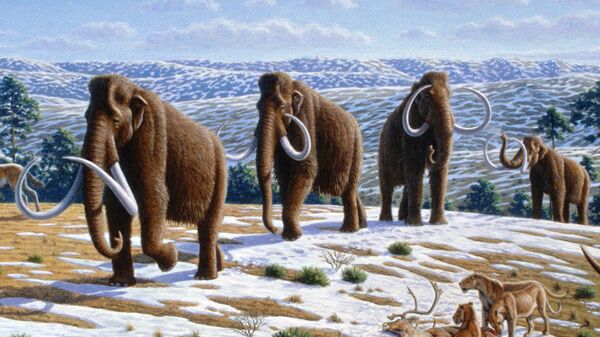Japanese scientists say they have taken a “significant step” towards reviving the extinct furry giants, woolly mammoths, after they managed to transplant cells taken from the carcass of a 28,000-year-old mummified mammoth into a mouse, which then, extraordinarily, showed positive biological activity.
The team experimented with what they called are “well-preserved” tissue samples from the animal’s bone marrow and muscle, which allowed them to collect as many as 88 nucleus-like structures, further sewn into mouse oocytes, a cell in an ovary. The latter is supposed to undergo genetic division to ultimately set the mammoth revival project in motion, with an egg cell forming in the mouse’s ovaries.
The team said following the procedure that a “pronucleus-like structure budded from the injected … mammoth nucleus”.
They also found possible signs of repair to damaged mammoth DNA.
“These results indicate that a part of mammoth nuclei possesses the potential for nuclear reconstitution”, the scientists said, in a paper published in the journal Nature.
Despite certain complications due to “due to the extensive DNA damage in the transferred nuclei”, the research and transplantation itself marked a remarkable “step toward bringing mammoths back from the dead”, Kei Miyamoto, one of the study’s authors, told Japan’s Nikkei media outlet.
“We want to move our study forward to the stage of cell division”, he added, acknowledging though that “we still have a long way to go”.
The majority of the mammoth population died out between 14,000 and 10,000 years ago, with the last mainland population estimated to have plodded around in the Kyttyk Peninsula of Siberia until 9,650 years ago.


